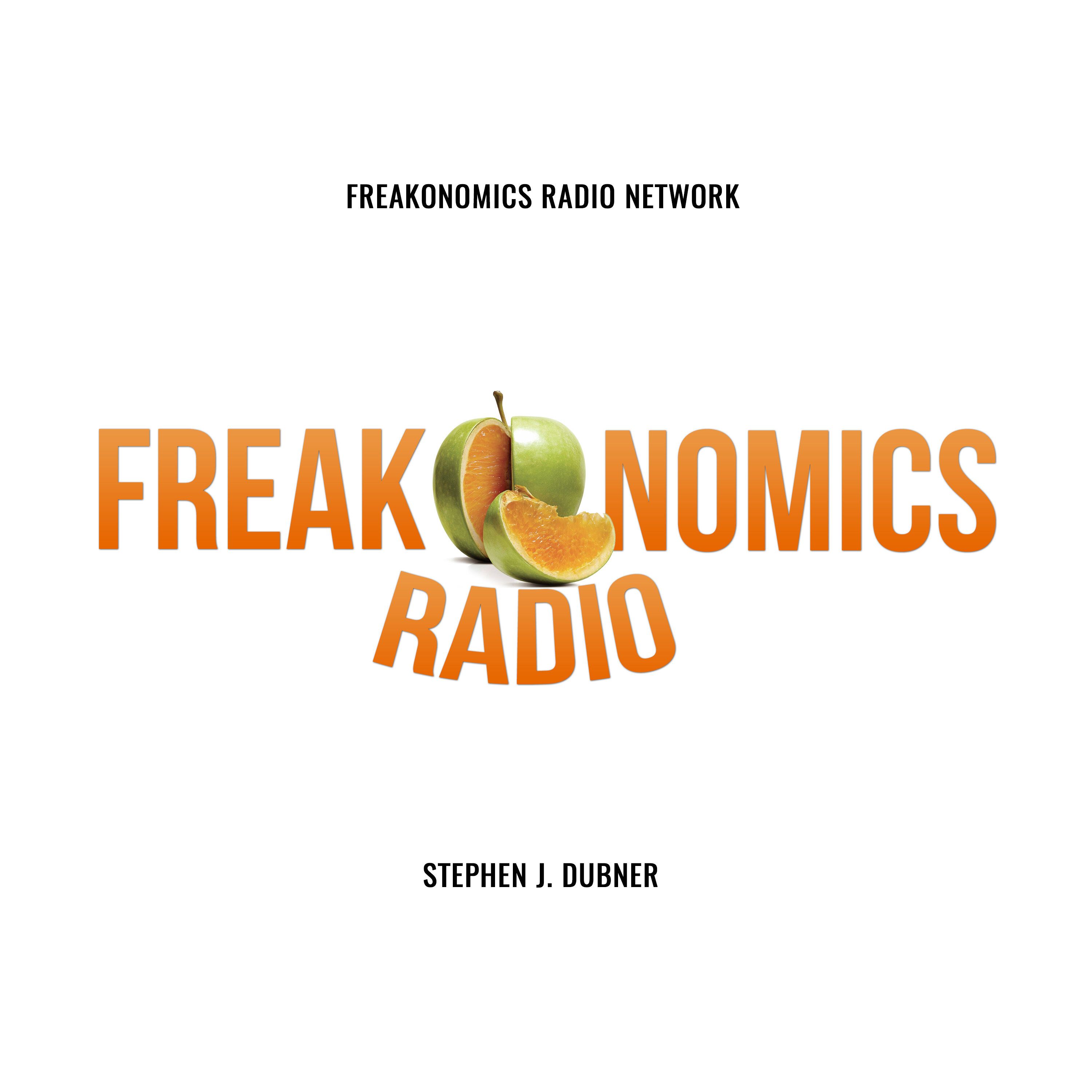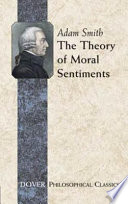📚 2 Books mentioned in "Was Adam Smith Really a Right-Winger? | Freakonomics Radio | Episode 526" of Freakonomics Radio

Podcast: Freakonomics Radio
Episode: Was Adam Smith Really a Right-Winger? | Freakonomics Radio | Episode 526
Published on January 2, 2023
Here’s a list of all the books mentioned in this episode. Click on the links to watch specific excerpts on YouTube and feel free to purchase the books if they caught your interest!

The Theory of Moral Sentiments
Buy The Theory of Moral Sentiments by Adam Smith on Amazon
My book attempts to reintroduce modern readers to Adam Smith's overlooked masterpiece, The Theory of Moral Sentiments.
The guest shares that his book aims to help modern readers rediscover Adam Smith's neglected work, 'The Theory of Moral Sentiments'.
I think the real Adam Smith Problem is that most economists and politicians who refer to The Wealth of Nations for guidance have simply not read The Theory of Moral Sentiments.
In the podcast, the host argues that many economists and politicians who cite 'The Wealth of Nations' for insights have likely not read Adam Smith's earlier work, 'The Theory of Moral Sentiments.'
Throughout these recent episodes, we have likewise been reevaluating Adam Smith, hoping that it too will yield benefits.
The host reflects on the ongoing reevaluation of Adam Smith, particularly drawing on insights from his work, 'The Theory of Moral Sentiments,' to highlight potential benefits that may arise from this reassessment.
Yet, reading The Theory of Moral Sentiments made me realize that many other influences affect us.
The guest reflects on how reading 'The Theory of Moral Sentiments' by Adam Smith helped him understand that various influences beyond just monetary incentives play a significant role in shaping human behavior.
Thus, I want to know how the act of reading The Theory of Moral Sentiments affected you.
The host inquires about the impact that reading 'The Theory of Moral Sentiments' had on the guest, especially in light of Adam Smith's insights into human motivations.
After reading The Theory of Moral Sentiments and pondering its content, did your economist colleagues think you had softened?
The guest is asked if his colleagues' views of him had softened after he read and contemplated 'The Theory of Moral Sentiments.'
If you're going to read just one paragraph from this work, this might be the one: Man naturally desires not only to be loved but also to be lovely or to be the proper object of love; He naturally dreads not only to be hated but also to be hateful or to be the proper object of hatred; He desires not just praise but praiseworthiness or to be that which, though it should be praised by no one, is still the natural and proper object of praise; He fears not only being blamed but also blameworthiness or to be that which, though it should be blamed by nobody, is nonetheless still the natural and proper object of blame.
In the podcast, a specific passage from 'The Theory of Moral Sentiments' by Adam Smith is quoted, highlighting the significance of being deserving of love and praise.
There’s one passage from The Theory of Moral Sentiments that Roberts emphasizes heavily in his book.
In this segment, the speaker highlights a particular passage from 'The Theory of Moral Sentiments' that Roberts emphasizes in his own book.
The concepts of sympathy in The Theory of Moral Sentiments and self-interest in The Wealth of Nations are perfectly compatible.
The podcast discusses 'The Theory of Moral Sentiments' in relation to 'The Wealth of Nations', highlighting how the concepts of 'sympathy' and 'self-interest' can coexist within Adam Smith's philosophy.
Glory Liu discusses this theory, which posits that Smith changed his mind or had a change of heart between writing The Theory of Moral Sentiments in 1759 and The Wealth of Nations in 1776.
In this segment, Glory Liu elaborates on Adam Smith's evolving theories as reflected in his two major works, 'The Theory of Moral Sentiments' and 'The Wealth of Nations,' highlighting the contradictions that have sparked debate and are referred to as the 'Adam Smith Problem.'
If you read both of Adam Smith's major works, The Theory of Moral Sentiments and The Wealth of Nations, you might conclude that there is not just one Adam Smith but two.
The discussion highlights 'The Theory of Moral Sentiments' alongside 'The Wealth of Nations', indicating a contrast in Adam Smith's perspectives that implies the existence of different aspects to his philosophical identity.

The Wealth of Nations
Buy The Wealth of Nations by Adam Smith on Amazon
I think the real Adam Smith Problem is that most economists and politicians who refer to The Wealth of Nations for guidance have simply not read The Theory of Moral Sentiments.
The podcast host states that most economists and politicians who reference 'The Wealth of Nations' for guidance have not read 'The Theory of Moral Sentiments', a position that has been called the 'real Adam Smith problem'.
It has been said that Thatcher carried a copy of The Wealth of Nations in her handbag.
The podcast discusses how Margaret Thatcher was reputed to carry a copy of Adam Smith's 'The Wealth of Nations' in her handbag, highlighting her alignment with his economic principles.
Do you really think he would publish The Wealth of Nations after dedicating so many years to it with an incomplete understanding of the government's role in providing services like education and transportation?
The speaker questions whether Adam Smith would have chosen to publish 'The Wealth of Nations' after investing so many years into it, especially if he had an incomplete understanding of the government's role in crucial areas like education and transportation, thereby underscoring the depth of Smith's intellectual commitment.
Yes, because The Wealth of Nations is an enormous, sprawling book \u2014elephantine\u2014and it's filled with facts, figures, and arguments, some of them not entirely consistent.
In this segment, the host discusses Adam Smith's 'The Wealth of Nations,' describing it as a large and intricate work containing numerous facts and arguments, some of which may not align perfectly with one another.
In Book Five of The Wealth of Nations, Adam Smith would appear to support this: "For a very small expense, the public can facilitate, can encourage, and can even impose upon almost the whole body of the people the necessity of acquiring those essential parts of education.
In this segment, the podcast discusses Book Five of 'The Wealth of Nations,' quoting Adam Smith's views on how public investment can promote essential education for society.
As Dennis Rasmussen explained, reconciling The Wealth of Nations with The Theory of Moral Sentiments isn’t particularly difficult.
In this episode, the host shares that Dennis Rasmussen outlined how easy it is to reconcile the ideas presented in 'The Wealth of Nations' with those in 'The Theory of Moral Sentiments'.
Here was the big question: would Britain be, as Adam Smith wrote in The Wealth of Nations, a nation of shopkeepers or a nation of government bureaucrats?
In this segment, the podcast host discusses a critical question regarding Britain's identity, quoting Adam Smith's work 'The Wealth of Nations' to explore whether the country would evolve into a society of shopkeepers or bureaucrats.
